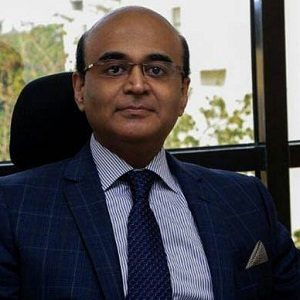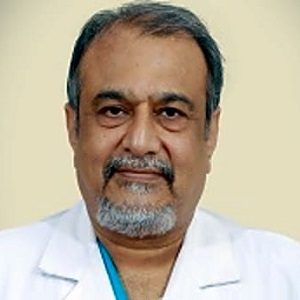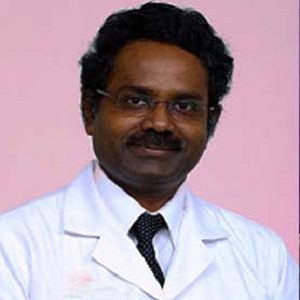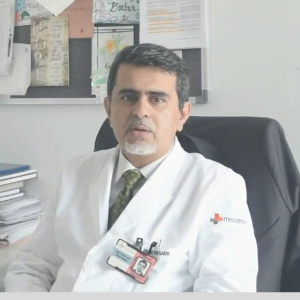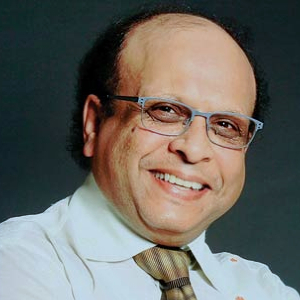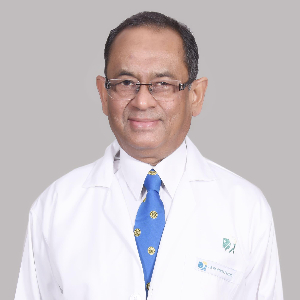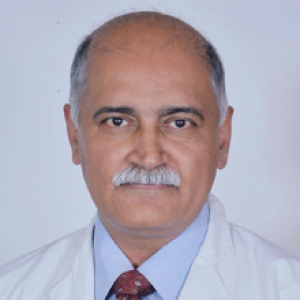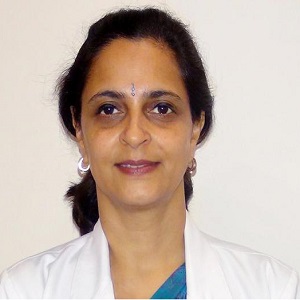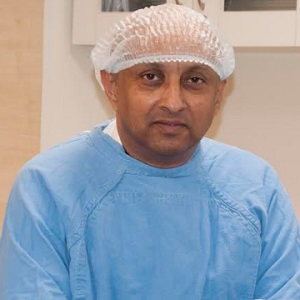Best Doctors in India for Alcoholic Hepatitis Treatment
- Pediatric Cardiac Surgeon, Cardiothoracic and Vascular Surgeon, Chennai, India
- Over 21 years’ experience
Profile Highlights:
- Dr. Neville Solomon is one of the best Cardiothoracic Surgeons in South India.
- Dr. Neville Solomon heads the Cardiology unit; his team has performed over 6000 heart operations to date, including 3000 congenital cardiac surgeries in newborns and adults
- In addition to this, Dr. Solomon runs the Save a Child’s Heart Initiative (SACHI) Program with his associates at Apollo Hospital.
- Cardiac Surgeon, Cardiothoracic Surgeon, Vascular Surgeon; Chennai, India
- Over 37 years’ experience
Profile Highlights:
- LF Sridhar is a well-known Cardiothoracic & Vascular Surgeon in Chennai, now working at Apollo Hospital in Greams Road, Chennai, and has an experience of 37 years in this arena.
- Some of the services available with the doctor are Mitral/Heart Valve Replacement, Cardiac Pacing, and Intra – Arterial Thrombolysis, Pacemaker Implantation, and bypass surgery besides the regular OPD procedures.
- Cardiac Surgeon, Cardiothoracic Surgeon, Vascular Surgeon, Chennai, India
- Over 25 years’ experience
Profile Highlights:
- Dr. K Madhan Kumar is a well-known Cardiac Surgeon in Tamil Nadu, having many years of experience in the domain.
- His experience came from practice and teaching. These days, he is associated with Apollo Hospital Greams Road in Chennai as a Senior Consultant Cardiothoracic & Transplant Surgeon.
- Dr. Kumar has also completed Fellowships in Cardiothoracic Surgery at SGH in London as well as ECMO, VAD, and transplantation at HH in London.
- ENT, Head & Neck Onco Surgeon, Gurugram, India
- Over 20 years’ experience
Profile Highlights:
- Dr. Deepak Sarin is a well-known Head and Neck Onco surgeon with a specialization in oral and throat cancers.
- His interest lies in minimally invasive surgeries for head and neck cancer and is also an expert in Robotic and Laser surgery.
- He holds the credit for establishing the Head and Neck surgery department in Sir Ganga Ram & Artemis Hospital and also started the Head and Neck Surgery unit in Medanta.
- Orthopedic Surgeon, New Delhi, India
- Over 30 years’ experience
Profile Highlights:
- (Prof) Raju Vaishya is a well-known Orthopedic Surgeon in India with expertise in arthroscopic surgery (hip and knee) and joint replacement procedures.
- He has been in the field of joint replacement and arthroscopy for more than 30 years and is highly skilled at the management of chronic arthritis and performing joint replacement surgeries for hip, knee, elbow, shoulder, and finger joints.
- Dr. Raju Vaishya is among the first orthopedic surgeons to introduce shoulder arthroscopy in India and is the best surgeon for knee and hip arthroplasty in the country.
- His interest also lies in cartilage regeneration and restoration along with management and treatment of ligament injuries.
- Currently, Dr. Raju Vaishya is one of the lead orthopedic surgeons in Indraprastha Apollo Hospital and is also a Professor in the department. He is part of a highly efficient team of orthopedic doctors and surgeons in the hospital which makes it one of the best orthopedic centers in India.
- He runs a fellowship training program in orthopedic surgery under Indraprastha Apollo Hospital and has trained over 300 national and international orthopedic surgeons.
- Dr. Vaishya is known to have introduced the personalized knee surgery plan that uses a customized patient-centric approach for arthroplasty.
- Dr. Raju Vaishya regularly attends national and international scientific meetings and gets invited to speak and deliver talks at such conferences and seminars. He has chaired various orthopedic and arthroscopic sessions and delivered presentations.
- He has done a large number of research on the different aspects of Arthroscopy and joint replacement procedures. His work has been published in renowned peer-reviewed journals and holds the credit for over 175 publications in national and international journals and medical textbooks.
- Dr. Raju Vaishya’s name has been featured in the Limca Book of Records four times for his contributions towards orthopedics.
- An esteemed member of numerous medical associations and organizations, Dr. Vaishya is a well known name in orthopedic surgery of the world.
- Hematologist & BMT Specialist, Gurugram, India
- Over 20 years’ experience
Profile Highlights:
- Dr. Rahul Bhargava is a leading Hematologist and Bone Marrow Transplant specialist who specializes in Haploidentical and unrelated match transplants and has performed over 400 Bone Marrow Transplants.
- He became the first doctor in India to introduce Stem Cell Transplant for Multiple Sclerosis in 2016.
- With his team of oncology specialists, Dr. Rahul Bhargava performed the first Haploidentical Stem Cell transplant on a Fanconi Anemia patient in India.
- Neurosurgeon & Spine Surgeon, New Delhi, India
- Over 30 years’ experience
Profile Highlights:
- Dr. Rajendra Prasad is one of the most experienced Neurosurgeons and Spine surgeons in India.
- Dr. Rajendra Prasad is an expert in all neuro and spine surgeries that including micro neurosurgery, minimally invasive spine surgery, surgery for degenerative spine diseases, surgery for brain and spine trauma, and neuro tumor surgeries.
- Cardiac Surgeon, New Delhi, India
- Over 29 years’ experience
Profile Highlights:
- Dr. Kulbhushan Singh Dagar, a pioneer and an expert in the cardiology field earned his reputation through his exceptional performance in the field of complex congenital heart defects, especially for newborns.
- With over 29 years of experience, Dr. Dagar has dedicatedly performed complex surgical procedures by implementing innovative techniques and cutting-edge technologies in his procedures and is currently considered an asset to the cardiac industry, not just nationally, but internationally too!
- Ophthalmologist, Eye Surgeon, Gurugram, India
- Over 22 years’ experience
Profile Highlights:
- Dr. Anita Sethi’s proficiency lies in LASIK Surgery, Phaco Eye Surgery, Refractive Surgery, Ptosis & other Oculoplastic Surgery, Cornea treatment, and Cataract treatment.
- She has a special interest in Orbital & Oculoplastic surgery and has worked extensively with trauma and Acid burn victim. She is known to be among the best ophthalmologists in India.
- Ophthalmologist, Eye Surgeon, Gurugram, India
- Over 36 years’ experience
Profile Highlights:
- Dr. Sudipto Pakrasi is an immensely talented and extremely popular Eye Surgeon, famous for operating on most celebrities in India. Known to be one of the finest Ophthalmic Surgeons in the country, Dr. Sudipto Pakrasi has also been a pioneer in innovations as well as the Art of Cataract surgery over the past 36 years.
- He is known especially for his insightful medical treatment approach for cataract surgeries and glaucoma.
Best Hospitals in India for Alcoholic Hepatitis Treatment
ALCOHOLIC HEPATITIS
Alcoholic hepatitis is a liver infection, which is mainly caused by frequent, heavy use of alcohol. Fat can build up in the liver cells, which might lead to inflammation as well as scarring of the liver.
Alcoholic hepatitis might be mild or severe. A patient might even need a liver transplant if proper treatment is not provided, or if they don’t stop consumption of alcohol.
It is also notable that all heavy drinkers don’t develop this condition, and sometimes this condition even develops in people who drink moderately. However, if you are diagnosed with this condition, it is important for you to quit drinking alcohol. People who continue drinking alcohol might face a huge risk of serious liver damage as well as death.
Symptoms
Depending on the amount of damage to the liver, the symptoms can vary. If you are having a mild form of the disease, you might not even experience any symptoms at all. However, as the damage continues to grow, you might experience the following:
- Changes in appetite
- Dry mouth
- Weight loss
- Pain or swelling in the abdomen
- Jaundice, or yellowing of the skin or eyes
- Fever
- Nausea and vomiting
- Easy bleeding or bruising
- Changes in your mental state, including confusion
- Fatigue
The symptoms of this condition are similar to those caused by a few other health conditions. Therefore, if you develop any of these symptoms, it is best to get a proper diagnosis as well as begin treatment.
Causes & risk factors
Alcoholic hepatitis generally develops when the alcohol you drink causes damage to your liver. However, it is not clear why alcohol does this damages only to some heavy drinkers.
Few factors that are known to play a role in this condition include:
- The body’s process that breaks down alcohol produces some toxic chemicals
- These chemicals can trigger inflammation that can destroy the liver cells
- Thus, over time, scars replace healthy liver tissue, thus interfering with the function of the liver
- This irreversible scarring, which is also termed cirrhosis, is the final stage of alcoholic liver disease
If you have hepatitis C and continue to drink, even moderately, you are more likely to develop cirrhosis.
Some heavy drinkers are also malnourished because they don’t eat a proper balanced diet. Alcohol and its byproducts also prevent the body from absorbing nutrition properly. Lack of nutrition can contribute to liver cell damage.
Some other risk factors that can lead to this condition include:
- Your sex- Women are usually at a higher risk of developing alcoholic hepatitis since the way alcohol is processed in women is different.
- Binge drinking- Having over five drinks within two hours for men and four or more for women can increase the risk of alcoholic hepatitis.
- Obesity- Heavy drinkers who are overweight are also more likely to develop alcoholic hepatitis and to progress from that condition to cirrhosis.
- Race and ethnicity- Hispanic and Negroid people might be at higher risk of alcoholic hepatitis.
- Genetic factors- According to studies, there may be a genetic component in alcohol-induced liver disease. However, it is difficult to separate genetic and environmental factors.
Diagnosis
If you are showing symptoms of alcoholic hepatitis, your doctor will first inquire about your medical history and alcohol consumption. Next, he/she will perform a physical exam to see if you have an enlarged liver or spleen. They might also need a few more tests to confirm your diagnosis, such as:
- Complete blood count (CBC)
- Liver function test
- Ultrasound of the liver
- Abdominal CT scan
- Blood clotting tests
In some cases, a liver biopsy might also be needed to confirm the diagnosis of alcoholic hepatitis. A liver biopsy requires your doctor to remove a tissue sample from your liver, which is then tested in the lab. This method helps to show the severity and type of liver disease.
Treatment
Stopping alcohol consumption is the most important treatment for alcoholic hepatitis. There is no cure for this condition, but treatment can help in reducing or eliminating symptoms, or stopping its progression.
It is also important to note that scarring of the liver is permanent, but treatment can aim to restore as much function as possible.
Dietary changes
Medication
Liver transplant
The best hope of recovery is to be aware of the signs and symptoms as well as to reduce, manage, or if possible, completely stop consumption of alcohol.
Complications
Alcoholic hepatitis might lead to severe other complications such as:
- Enlarged veins (varices)- In this condition, blood that is unable to flow freely through the portal vein, can back up into other blood vessels in your esophagus or stomach.
- Hepatic encephalopathy- This condition can be caused by the buildup of toxins if your damaged liver is unable to remove all the toxins from your body. It involves confusion, drowsiness, and slurred speech.
- Ascites- Ascites is a condition in which the fluid that accumulates in the abdomen may get infected and thus, require treatment with antibiotics. Although this condition is not life-threatening, it can be a sign of advanced alcoholic hepatitis, or cirrhosis.
- Kidney failure- A damaged liver affects blood flow to the kidneys, thus resulting in kidney failure.
- Cirrhosis- The scarring of the liver might lead to liver failure.
Prevention
Alcoholic hepatitis might be prevented if you take the following steps:
- Drink alcohol in moderation, if at all- For healthy adults, moderate drinking means no more than one drink a day for women of all ages and men older than 65, and not over two drinks a day for men aged 65 and younger. However, if you prevent all alcohol, it is a certain way to prevent this condition.
- Check before mixing medications and alcohol- Ask your doctor if it’s safe to drink alcohol while you are taking medications. Consider reading the warning labels on over-the-counter medications as well. Don’t drink alcohol when you are taking medications that warn of complications when combined with alcohol.
- Protect yourself from hepatitis C- Hepatitis C is an infectious liver disease that is caused by a virus. If it is left untreated, it may lead to cirrhosis. If you are having hepatitis C and you consume alcohol, you’re generally more likely to develop cirrhosis than if you don’t drink.

